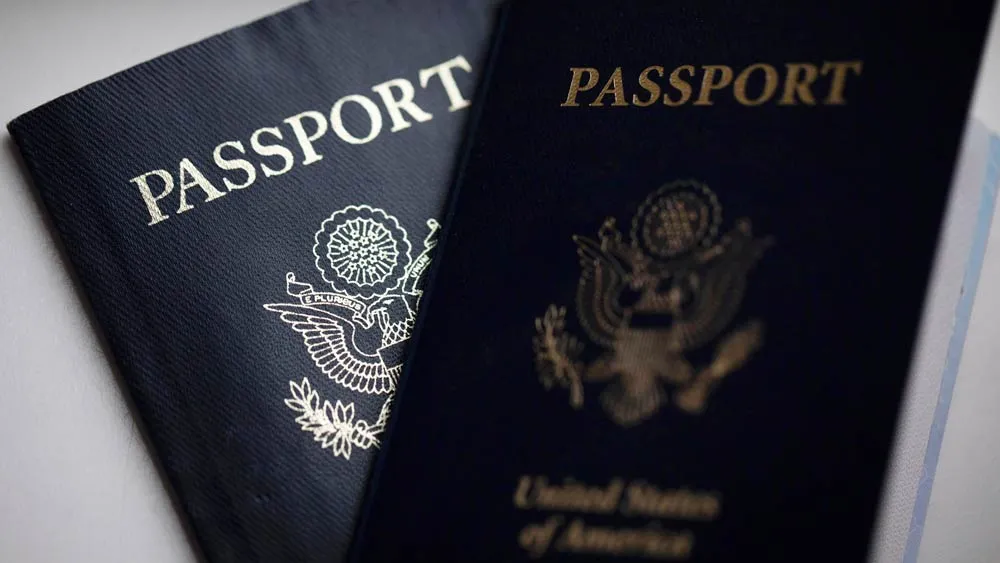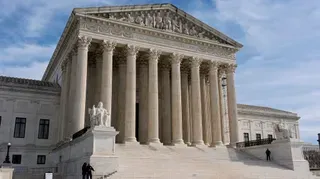January 29, 2012
Gays Optimistic Marriage Equality Will Come to N.J.
Winnie McCroy READ TIME: 5 MIN.
It appears likely that New Jersey could potentially follow its neighbor across the Hudson River and allow same-sex couples to legally marry. And from Cape May to Garfield, the state's gay and lesbian residents couldn't be happier.
"With us being involved since early on campaigning for rights, marriage is really what we'd like to see; not this separate but equal," said Cape May resident Vince Grimm, who has been with his partner Will Kratz for 50 years. "I served in the military, we pay our taxes, and I can't even sing 'The Star-Spangled Banner' without crying, that's how much I love this country, so being a second-class citizen makes me angry."
Grimm, who has a civil union with his partner, finds some of the benefits afforded to married heterosexual couples are not available without the legal protections of marriage. Others that the couple do have are tenuous.
Grimm said that even though he and Katz have both of their names on legal documents, insurance and inheritance paperwork, they are careful to carry them when they travel in case the issue of power of attorney should arise.
"When you have documents like trusts and wills, if you can put down there that you are married, it obviously carries a lot more weight from a legal standpoint, especially with some of the insurance companies. We ourselves haven't run into any problems, but have heard of other folks that have," said Grimm. "What people are finding out is that some companies are still sticking to the word 'marriage', and that creates problems."
Grimm said he and his partner were working for marriage equality to make it easier for the younger generation, "For us, the 'kids' are anyone under 60."
The Senate Judiciary Committee on Jan. 24 approved the marriage equality bill in an 8-4 vote. All seven of the state's Democratic congressmen and two U.S. senators have backed the measure. State Sens. Loretta Weinberg and Raymond Lesniak co-sponsored the bill alongside Senate President Steve Sweeney. And in a surprise turnaround, state Sen. Paul Sarlo, who came out against marriage for same-sex couples in 2009, now backs the measure.
Sweeney abstained from voting on the marriage equality bill when it came up for a vote two years ago-which he now admits was a mistake. Then-Gov. Jon Corzine had promised to sign the bill, but current Gov. Chris Christie, who has repeatedly stated his opposition to marriage equality, said he would veto the bill.
A vote on the Senate floor is scheduled for Feb. 13, where it will need 21 votes to pass. The proposal needs 41 votes in the state Assembly, but Speaker Sheila Oliver has expressed optimism that it will pass in her chamber. Even if the measure succeeds, supporters will need to gather the two-thirds majority in both houses required to override Christie's promised veto.
Business owner Pauline Messina is among those residents who hope that marriage equality will come to New Jersey. The lesbian co-owner of the Lunchbox Caf� in Garfield believes that the measure is necessary to send the message that everyone is equal. Messina also has her own motivation for wanting her interests protected.
"If I die and want to leave my business investments to my partner, this legislation provides for certain things I could do," she said. "They should just say everyone is equal; I don't think there should be rules against gay couples. My business partner Joy was telling me about a woman who was with her partner for 40 years. The partner died and her family came in and took everything from the one that was living, and they had built this home together. She was left with nothing. That's not right."
Messina's business partner, Joy Ortiz, said she has kept track of the marriage equality bill as a member of Garden State Equality.
"Considering the fact that I am gay, marriage equality would obviously be beneficial," said Ortiz, a resident of Little Ferry. "It shouldn't be that because you're a man and woman you get more rights than a woman and woman, or a man and man. It's very unfair."
Her friend, Elissa Labruna, also of Little Ferry, chimed in, saying that the current civil unions law falls short of providing the equal protections that only marriage equality can ensure.
"I remember when I was in the hospital, they wouldn't let my girlfriend come visit me," said Labruna. "It was absolutely ridiculous, because this was someone I was with for a substantial amount of time. It was a big problem."
Marriage Equality Could Bolster N.J. Economy
It's no secret that New Jersey's economy could use a boost. The marriage equality bill, with its accompanying revenue from marriage licenses, wedding officiates, reception halls, caterers, florists, bands and all the industries associated with wedding ceremonies, could add some much-needed funds to the coffer.
Messina is among those who are tired of New Jersey residents taking this possible revenue stream to neighboring New York to conduct their nuptials.
"There are so many gay people that live in Jersey but commute to and work in New York, so I'm sure a large percent of them have already gotten married there, but because they live in New Jersey it's not recognized," said Messina. "We should take that money and keep in it in New Jersey. We're hurting for money."
Ortiz echoed these feelings.
"The deal is, if this were allowed to happen in New Jersey, then the state could make their money," she said. "New York doesn't share their money with New Jersey. We need to make it legal so people could do what they need to do in the state they live in."
Labruna, who said that she had attended Garden State Equality meetings, said marriage equality would have allowed proceeds from her former business to go to her partner.
"If we're going to reside in New Jersey, this legislation is going to benefit everybody," she said. "I'm getting so disgusted I almost don't want to live in this state anymore. I see other states are passing marriage equality without lots of bells and whistles, so why is it so difficult in New Jersey?"
"How equal is it that a man and a woman get certain rights and we don't?" added Ortiz. "Everybody should get the same rights, no matter what lifestyle they live."
There is also the matter of federal recognition.
Grimm said that if New Jersey did allow marriage equality, there would be a better chance that the federal government would recognize their relationship.
"That's what we need, is federal recognition," said Grimm. "It means that the LGBT community is no longer second-class citizens. Even though we pay taxes, serve in the military, and all that stuff, we're not equal. We're not even separate but equal."
Winnie McCroy is the Women on the EDGE Editor, HIV/Health Editor, and Assistant Entertainment Editor for EDGE Media Network, handling all women's news, HIV health stories and theater reviews throughout the U.S. She has contributed to other publications, including The Village Voice, Gay City News, Chelsea Now and The Advocate, and lives in Brooklyn, New York.





